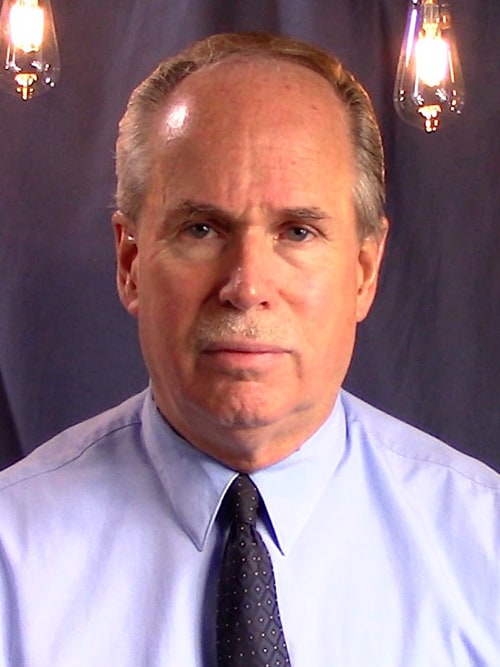Ever feel empty? I mean that drug down, tapped-out, bottom of the barrel, the well’s dry, running on fumes kind of empty. Most of the times when we’re exhausted we can reach way down and pull up some morsel of energy to get us through. There’s that reserve, that back-up that we can typically reach into when we need to in those desperate moments.
But what about the times when even that’s gone; when there is no reserve? What about the times when we’re left stranded, lying pathetically flat on our backs because we have no energy to do anything else? What about the times when it’s all a blur, kind of misty like and we’re not certain exactly what we’re doing because we can’t do anything anyway? What about those times?
For some of us, the shock of being entirely spent is more related to the fact that we don’t have that exuberant youthful vitality that we once had. There was a time when we could push through anything. We could always marshal enough strength to forge ahead sufficiently. But suddenly that’s gone, and we’re blindsided with the realization that those days are over and then some.
For others, it’s a sense of helplessness; a panic of sorts that we don’t have the personal resources to meet the demands that we face. And if we can’t meet them, then who will? What will happen if we can’t do this? There are few things more debilitating than being entirely spent and facing demands that we can’t pare down or get rid of. This kind of exhaustion breeds a paralyzing futility and it nurtures the toxins of hopelessness. Sometimes the whole thing feels like you’re trying to swim when you have no energy to swim, which leads us to want to quit swimming altogether. The outcome to that is anything but favorable.
So what’s a person to do? If you’ve not experience this kind of fatigue, you will. And if you are experiencing it, you may feel hopeless. So to the question . . . what do you do?
The Obvious – Sleep, Diet and Exercise
We could regurgitate the obvious. Certainly, sleep, diet and exercise are absolutely critical. Each of us should make certain that these are being attended to with regularity. However, we can read about those facets of good health in any number of places. Let’s look at some other, less obvious issues.
What’s My Goal Anyway?
Our goals are typically not about the goals themselves, but how people will perceive the goals. It’s not necessarily about what we want to accomplish as much as it’s about what others will find as appealing or courageous or daring or simply good and right about our goals. How will this play to everyone around us? Often the goal of the goal is to be valued by others. It’s not about the actual objective but how others will approve of or admire the chosen objective. Do you know how much energy it takes to maintain a goal simply for appearances? It takes a bunch. Those kinds of goals are not driven by passion, but by sheer willpower. Passion generates energy while willpower consumes it. Perpetual functioning on willpower will deplete you in short order.
Time What . . . ?
Where’s my time going? Yeah, we’ve all heard of time management but it gets about as much attention as National Stamp Day or the safety lecture the airline stewardess always gives us prior to take-off. Time management implies that we have limits. If our time and energy were limitless, there would be little need to manage them. But time is limited and so is our energy. Both are limited beyond what we’d like to acknowledge or accept. Embracing time management is frequently an acknowledgment that we function with limitations that are both imposed upon us and inherent within us. Sometimes accepting our humanity is tough. Time management is an acknowledgement of that humanity. It’s about accepting our limits and maximizing what limited resources we do have. Otherwise, we will squander precious energy and find ourselves expended.
Perfection Verses Excellence
Perfection is the pursuit of an impossible standard. It’s intended to achieve a perfect outcome by pursuing a perfect course of action. Typically, the pursuit of perfection is designed to overcome or compensate for some issues around low self-esteem or lack of self-confidence or meeting a standard to gain the acceptance of a parent. Excellence on the other hand is about giving one hundred percent of yourself to the task and by virtue of that investment letting the outcome be whatever it will be. It’s resting in the fact that the best of oneself has been given to the process and that nothing more can shape the outcome. It’s finding release in the achievable goal of giving the best of oneself and it strips us of wasting energy in an attempt to achieve an impossible outcome.
What’s Really Important?
Finally, what are we chasing and why? In the end, when it’s all said and done how much of what we’re pouring ourselves into will really matter anyway? When the sands of time blow across our lives, will anything of real value be left? Will anything be left? Sometimes it seems that we chase shadows made up of things temporal and shallow. We invest in a whole heap of nothing and find ourselves left with empty hands and confused hearts. And the energy we spend in such misdirected pursuits can be enormous. What’s really important . . . really? I think the important things are defined by questions like “will this live beyond me?” “Will what I’m doing make the world a better place?” “Am I living beyond my own existence or am I living for myself?” What’s really important?
Take a hard look at yourself and how you’re living your life. Make some changes in what you’re doing and how you think about what you’re doing. By doing so, you can live life with more energy and vitality. It will make a difference.

 Craig Lounsbrough
M. Div., LPC
Craig Lounsbrough
M. Div., LPC